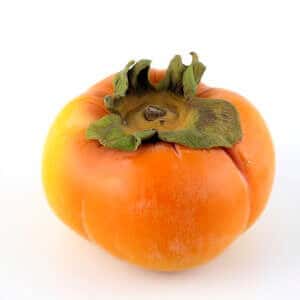
Heartburn is an ongoing problem for many people. Gastroenterologists may prescribe a proton pump inhibitor (PPI) such as dexlansoprazole (Dexilant), lansoprazole (Prevacid), omeprazole (Prilosec) or pantoprazole (Protonix). Such drugs have potentially serious side effects, however. As a result, many people prefer a more natural approach. Could persimmon tea be helpful for symptoms of acid reflux?
Where to Find Persimmon Tea:
Q. Where can I find persimmon tea? Is it good for acid reflux? Does it make you lose weight? (I am slim and don’t want to lose any weight.)
A. Persimmon tea doesn’t cause weight loss, but it does appear to help ease heartburn. Here is the original story we got from a reader:
“My reflux became really bad after menopause. Acid suppressing drugs worked great, but after two months I couldn’t stop them without the heartburn recurring.
“One night, I took colleagues to dinner at a Korean restaurant. Someone ordered Persimmon Punch, a concentrated cinnamon-ginger drink, for dessert. A few sips later, I felt fantastic.
“After one month of adding about 3 tablespoons of the cinnamon-ginger drink to my tea morning and evening, my low-density lipoprotein cholesterol levels had dropped 30 points, blood sugar dropped 10 points and my heartburn was under control.”
Although you can buy canned persimmon punch in Asian specialty stores, it probably will be easier and cheaper to make it yourself. The recipe, along with other advice on conquering reflux, is in our Guide to Digestive Disorders.
What Is in Persimmon Tea?
While we are discussing persimmon tea, its most significant ingredient might be ginger. This spicy rhizome has long been used to quell indigestion. A concoction with multiple ingredients used in Chinese medicine, Wendan decoction or Wen Dan Tang, includes ginger and bitter orange among other components. A meta-analysis showed that Wendan decoction is effective for gastroesophageal reflux and has a low relapse rate of approximately 12 percent (Ling et al, American Journal of Chinese Medicine, online Aug. 4, 2015).
In addition to ginger, persimmon tea contains cinnamon and some sweetener. Cinnamon reduces the secretion of gastric acid and pepsin (Ou et al, Scientific Reports, Sep. 16, 2016). Consequently, we’d expect that cinnamon is also contributing to the effect of the persimmon tea.
All three ingredients-ginger, cinnamon and persimmon-may help lower blood fats and blood sugar (Zou et al, Food & Function, July 25, 2014). This helps explain the report from the reader that her LDL cholesterol and blood glucose both dropped as her reflux symptoms waned. For the best results in regard to those goals, though, you might want to reduce the amount of sugar in the traditional persimmon punch preparation.

